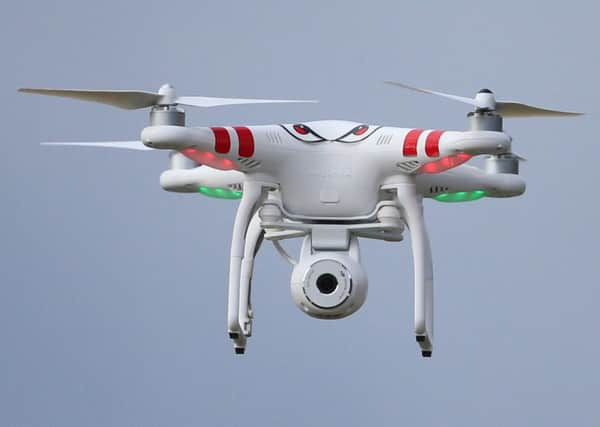Rise of robots could see the end of potholes and road closures


But they could all be a thing of the past should the rise of robots step up to repair our roads.
Speaking at Cheltenham Science Festival today, mechanical engineering Professor Mark Miodownik of University College London said a fleet of autonomous road vehicles or drones could one day travel around cities identifying cracks in roads and pavements and fixing them before potholes develop.
Advertisement
Hide AdAdvertisement
Hide AdAnd the technology has already been pitched to authorities in Yorkshire - with Leeds City Council working with a team of engineers and designers to pioneer the idea of “self-repairing cities”, Prof Miodownik said.
He told the festival that Britain’s road network was falling apart due the backlog of repairs and the authorities did not have the resources to take preventative measures.
“Our idea is that when these small cracks happen we want to be able to see them - a drone flying around the road network would see them - and another drone would land and repair them,” he said. “You do it at night and we can do it in about a minute. You stop over the crack, you repair the crack and it’s done.
“For motorways it is a different problem but for roads in Cheltenham and bigger cities, I think night-time autonomous vehicles would have almost no impact on traffic.”
Advertisement
Hide AdAdvertisement
Hide AdHe added: “This is going to be a big future for us all. What is immediately possible now for ‘self-repairing cities’ is an exciting prospect in all of our lives.
“This is probably become a reality. There are all sorts of ethical and moral issues in putting robots in a city environment.
“Unless the public and policy-makers are involved right at the beginning of this technology, which is now, the chances of it advancing to the point where they feel excluded or we can see a future that no-one really wants is high.”
Professor Rob Richardson, Director of the National Facility for Innovative Robotic Systems at the University of Leeds, said the Self Repairing Cities programme aims to create “fleets” of robots that could “live” in cities.
Advertisement
Hide AdAdvertisement
Hide AdAlongside road repairs, they could also fix pipes before they burst and maintain street lights and other utilities without the need for highly disruptive road closures.
He said: “Detecting faults and weaknesses early and then quickly performing smart repairs is the key.
“Our aim is for robots to undertake precision repairs and avoid the need for large construction vehicles in the heart of our cities.”
Drones tests have already been carried out and the first robots could be operational by 2050, he added. Workers currently carrying out often dull, repetitive and sometimes risky jobs on busy highways could be trained and supported into new roles managing or arranging robots’ work functions.
Advertisement
Hide AdAdvertisement
Hide AdMeanwhile, academics the University of Huddersfield are working with South West Yorkshire Partnership NHS Foundation Trust to pioneer the use of Artificial Intelligence (AI) to predict which mental health patients are most likely to take their lives.
Professor Grigoris Antoniou, who led the project, said that while human behaviour is “in general very difficult to predict”, the automated risk assessment could “inform and structure clinical judgements” about suicide risk.